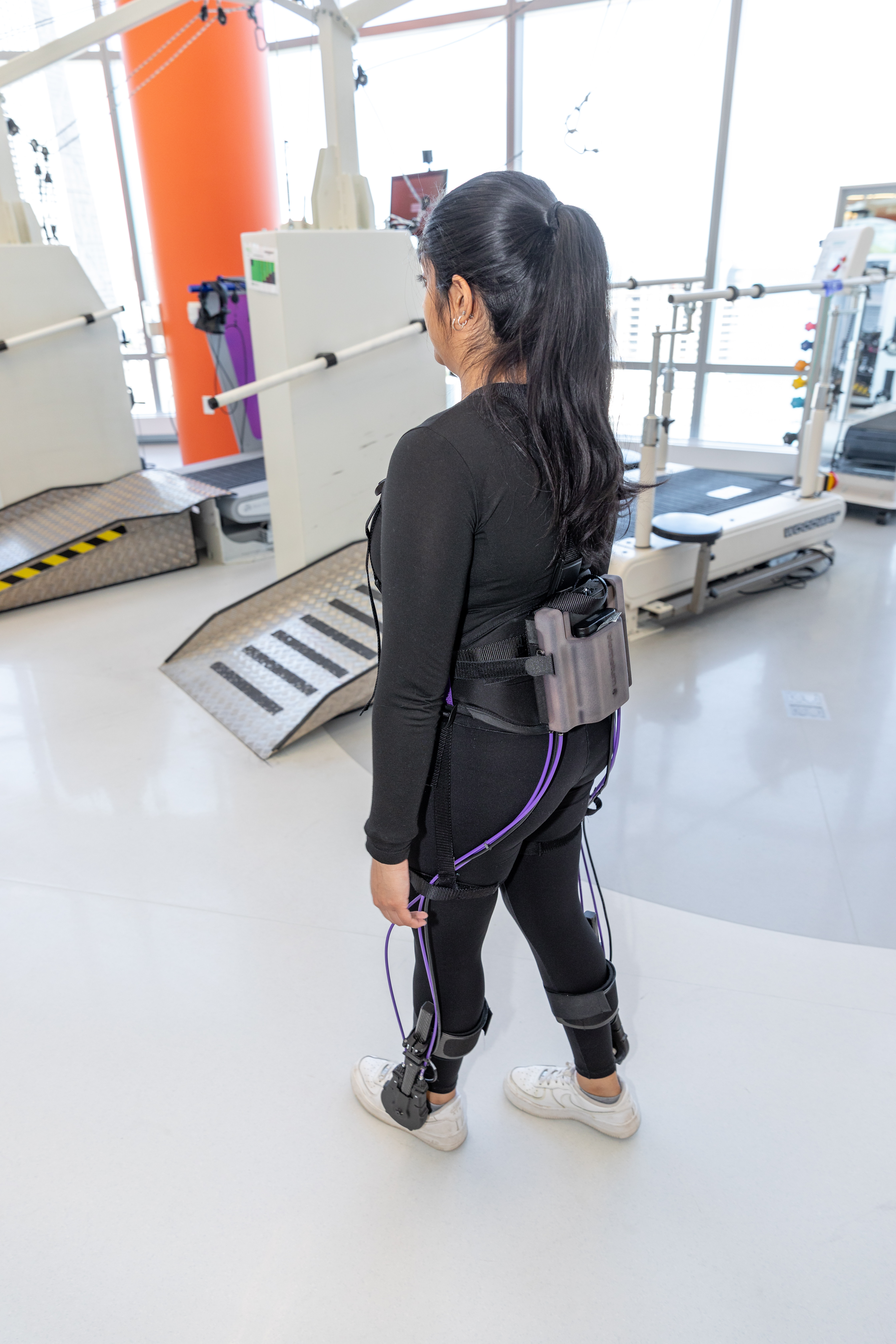Body
This study is complete and is no longer recruiting subjects
Overview
Body
The purpose of this study to determine the safety and benefit of the BiOMOTUM RAAD robotic exoskeleton device to provide resistance as a tool used in walking training intervention in the pediatric cerebral palsy population. The research is also looking to compare the use and benefit of the BiOMOTUM RAAD device in a supervised physical therapy setting versus parent-led sessions. Subjects complete 12 training sessions, 3 times per week. Subjects ambulate for 30 minutes on
the treadmill in resistance mode.

Subject Population
Body
- Have a diagnosis of cerebral palsy
- Ages 8-21 years
- Have a Gross Motor Function Classification System (GMFCS) score of 1-3
- At least 20 degrees of passive ankle plantar flexion range of motion
- Ability to understand and follow verbal cues
Study Personnel
Mentioned Profile

Arun Jayaraman, PT, PhD
Executive Director, Technology & Innovation Hub (tiHUB); Director, Max Näder Center for Rehabilitation Technologies & Outcomes ResearchFunding Source
Body
National Institute of Child Health and Human Development
